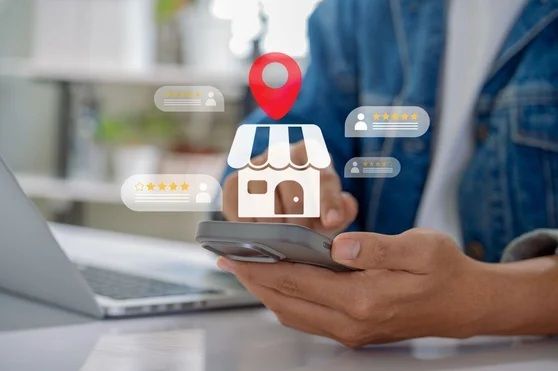
Summary: Learn more about experiential marketing and how marrying it with a robust digital marketing campaign can immerse consumers in a life experience to create and retain brand loyalty.
With the pandemic still fresh in the minds of many, it can be hard to believe that live events are starting to come back. And while the last two years have helped digital marketers take the next step with online marketing, there’s still something to be said for that first-hand, in-person product experience.
But, you might be asking yourself, is that something people will be interested in after two years of online-only events?
I think yes! And there is a logical reason why experiential marketing is making a comeback. The past two years have left a void in most consumers’ lives and have significantly affected how companies market and reach individuals. People have missed interacting with others—and in-person events can tap into that nostalgia and help your brand stand out.
While digital marketing immediately connects people with what they’re looking for online, experiential marketing focuses on creating a memorable experience for consumers looking to purchase a product.
Let’s dive into a little bit of what experiential marketing is and how it can work in concert with your overall marketing strategy.
What is Experiential Marketing?
At its most basic, experiential marketing is a marketing tactic in which businesses interact with consumers directly in an offline setting. You may also hear the terms “live marketing” or “event marketing experience.”
Regardless of the technical term or how someone defines it, experiential marketing aims to immerse consumers in a life experience to create and retain brand loyalty. Think of that free birthday drink from Starbucks or the discount code you receive in your inbox when you sign up for a newsletter—if a customer has a memorable experience with a specific product or brand, they are more likely to remember that product and purchase it in the future.
Brands can create unique experiences for their consumers by following three fundamental principles of experiential marketing:
- The event must be actively engaging
- The event must be live and unique
- The event should provide multi-sensory stimulation
These points will help you create an active and memorable experience that customers will hold onto and recall when they require a product or service. The key is to have people walk away from their brand experience with a smile and a sense of gratitude for your company.
Why is Experiential Marketing Important?
Marketing works best when it capitalizes on human emotion and creates long-lasting, enjoyable experiences. From these experiential marketing events, people will associate your brand with special and potentially life-changing effects.
This affects people who aren’t able to attend the live event as well. They will see your brand’s impact on those who got to have the experience live and naturally be curious about what your brand does.
When planning an experiential marketing event, you should partner with an influencer you’ve identified who speaks to your target audience. These influencers already have the ear of people you want to sell to—so look into your buyer personas and identify social influencers speaking to the same audience.
Experiential marketing is a powerful business strategy because it creates brand loyalty through human connection, which is the end goal of any marketer (digital or otherwise!) worth their salt. Human connection binds people together and creates a stronger bond between your brand and consumer than non-targeted or generic ads and other missed marketing opportunities ever will.
Why is Experiential Marketing Expected to Make a Comeback?
It doesn’t take a genius to see that people miss human interaction; in fact, after the last two years, people miss experiencing anything.
Companies have taken notice and are ready to take full advantage of the situation and add experiential marketing opportunities alongside their existing digital campaigns. It’s just the thing people need to get excited about spending money on their favorite brands and products.
Don’t forget—Americans see an average of 4,000 ads per day. And unfortunately, the vast majority of those advertisements are forgotten or barely acknowledged by the average person. But, if a company takes the time to create a memorable experience for their potential customers with customized content, targeted ads, and exciting in-person events, they’ll gain a lot more attention from them and those around them.
Will the Pandemic Change Experiential Marketing?
Despite a lack of in-person activity over the last two years, businesses continue to invest in creating live experiences for consumers in digital spaces.
Right now, companies are taking the time to humanize the digital experience during the post-pandemic era. Brands are hosting live events and digital conferences to communicate directly with consumers. Live events are coming back, but companies are still working hard to create interactive online experiences that can reach a broader audience.
How Can Your Brand Take Advantage of Experiential Marketing?
To take full advantage of experiential marketing, you must be willing and able to provide a unique experience. Your goal should be to capture people’s attention and associate your brand with something unforgettable.
Brands need to create a robust brand strategy that leverages in-person and online activities and makes them work together. The ultimate goal of this brand strategy should be to develop a story around your brand that is authentic and relatable.
60% of US consumers have seen items out of stock in the past year. 39% of those consumers didn’t wait for that item to restock; instead, they swapped brands completely.
Many established brands are experiencing loyalty shake-ups. Since they cannot provide for all of their customers, they continue to lose them until they can actively resolve the situation. Unfortunately, by the time the brand resolves the understock, they have already lost the trust of their previous customers.
Fortunately for you, though, this allows you to capture the attention of those consumers. Utilizing strategic digital marketing tactics post-pandemic may be the competitive edge your business needs to establish some brand loyalty during this shake-up era.
What Are the Downfalls of Experiential Marketing?
While creating a memorable experience for people leads to brand loyalty, if your brand isn’t already popular and doesn’t have a big budget, creating a unique experience will be difficult; you’ll have to get creative.
Additionally, hosting events for only a few people isn’t worth the payoff unless they have a massive influence on communities. As a result, you’ll find that most established brands focus on creating events that will attract new people.
While smaller brands have to get more creative, more established brands have to spend more money to make a more significant impact they’re looking to find. Experiential marketing is therefore known to be a costly and sometimes risky marketing endeavor.
This is why experiential marketing tactics need to work hand-in-hand with digital marketing. There is always a chance that a consumer will have a negative experience at a live event, which is the exact opposite effect you want from an experiential marketing campaign. And that’s where your developed digital marketing campaign will pick up the slack, with personalized content, customized landing pages, and targeted ads.
Conclusion
Experiential marketing can be important to a brand’s overall marketing strategy. Many established brands have been unable to retain their current customers throughout the pandemic, and people crave social interaction.
The goal of marketing (whether it be digital or experiential!) is to create true loyalty to a brand. Costumers are humans and no longer care to be another consumer statistic. By creating unforgettable experiences online and in person, you will play to their humanity and earn your brand some loyal customers.
About the Author
Rick spent 20 years in the insurance industry in finance, primarily developing reporting platforms for B & C stakeholders. His ability to speak to consumers of data (managers and analysts) and translate their needs to programmers led him to start his own digital marketing agency in 2004 to develop data driven solutions for business owners.
The Best Digital Marketing Insight and Advice
We are committed to protecting your privacy. For more info, please review our Privacy and Cookie Policies. You may unsubscribe at any time.
Don’t stop the learning now!


